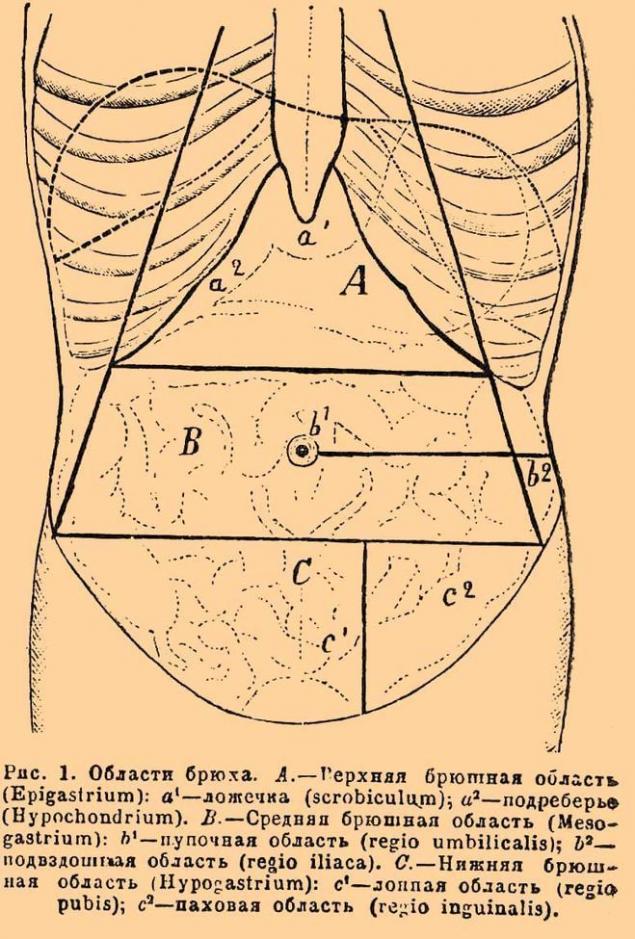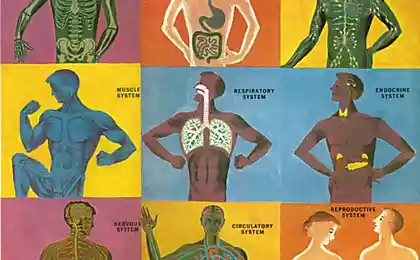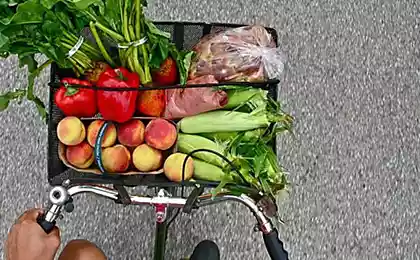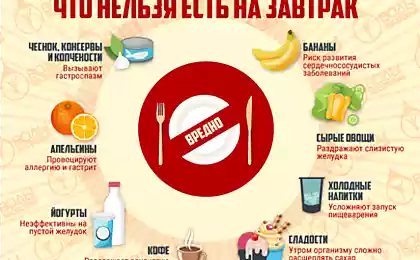209
Sucking on a spoon? Find out what this really means.
"Sucking under a spoon." “Spoon” has long been called the trench between the ribs, it is clearly visible in quite slender people and really looks like a spoon (under the sword-shaped process of the sternum). When a person is faced with thrills, danger, nervous or frightened, this leads to the excitement of the autonomic uneven system and the motor activity of the stomach increases. This feeling caused by nervous experiences is called “sucking under a spoon”. This is the first and most common reason.
Previously, all people correctly believed that this feeling is exclusively nervous nature. Now there is a common misconception that this is hunger or “excretion of gastric juice”. Let’s try to clarify this issue.

Often sucks under a spoon a few hours after eating. This is especially acutely felt by choleric people and people with a mobile psyche. It's not hunger, it's called a migratory motor complex.
The migrating motor complex (MMK) is a cyclic, stereotypically repeated contractile activity of the stomach. The migratory motor complex is characteristic of the resting period of the digestive tract. After eating, the motor activity of the stomach is significantly modified and MMK is interrupted. Reductions arising within the migratory motor complex ensure the promotion of food residues, mucus, bacteria, digestive juices through the digestive tract. These contraction cycles have a duration of up to 90-120 minutes. Most of this time is in the resting phase (Phase I). Muscle contraction begins in phase II and, gradually increasing, reaches a maximum degree in phase III. The duration of phase III is about 5 minutes. Phase III is a kind of flash of contractile activity, which begins with the antral part of the stomach and then extends to the entire intestinal tube. This is the so-called migratory motor complex (MDC), we can perceive this activity as “sucking under a spoon”. After phase III, there is sometimes a short period of decline in motor activity. A long break in nutrition reduces motor activity. After 24-36 hours of fasting, contractile activity drops by 70%. Only half of the MMK occurring in the duodenum reaches the middle of the lean intestine and only 10% - the beginning of the iliac. The proportion of migratory motor complexes occurring in the duodenum is correlated with the duration of fasting. Do not confuse MMK and sucks under a spoon with hunger pains! Sucked under a spoon - just a feeling of emptiness in the stomach. Yes, it will disappear in 5-10 minutes if you eat. But it's not a healthy solution. Hunger reductionsThey are most pronounced in a young, healthy body, when a high degree of tone is noted; they are also elevated in people who have a lower blood sugar level than normal. When hungry stomach contractions occur, a person sometimes feels a slight soreness in the epigastric region, which is called hunger pains.Within 12-24 hours after the last intakeHunger pain usually does not occur; during fasting, they reach a peak of intensity for 3-4 days and in the following days gradually weaken. People.ulcerativeHunger pains differ from healthy ones and can occur as early as 6-7 hours after the previous meal. It is important that they disappear after a person has eaten. They are intense, pass in 30-60 minutes after eating. At the same time, usually the person turns pale, covered with sweat, the pulse slows down. If the ulcer is on the body of the stomach, the feature is early pain, that is, pain that occurs about an hour after eating and lasts about two hours. Then the pain gradually disappears. If the ulcer is in the duodenum or in the place of direct transition of the stomach to the duodenum, there are so-called late pains - they occur two hours after a meal or at night, forcing the patient to wake up and drink milk. When hunger increasesnightlyand is accompanied by "sucking under the spoon" and moderate pain, then this may be due to disturbed hormonal balance. Hunger pain in the stomach at this time of day can be caused by a change in the balance of hormones leptin, ghrelin, cortisol, neuropeptide Y, etc. Thus: 1. If it sucks under a spoon, but passes in five minutes - this is the absolute norm, your stomach just stretches. It's not hunger! 2. If you suck under a spoon for more than 10 minutes - you are under stress, do something. Remember, stress eating is unproductive! We need to calm down and it will pass. 3. Acute pain after 6-7 hours - pay attention to the stomach, perhaps this is a sign of gastritis or peptic ulcer. 4. It sucks under a spoon strongly in the evening or at night. These are hormonal problems associated with the violation of hunger and satiety hormones. Food will only make things worse. For normalization, contact a nutritionist. published
Author Andrei Beloveshkin
P.S. And remember, just changing our consumption – together we change the world!
Join us on Facebook, VKontakte, Odnoklassniki
Source: www.beloveshkin.com/2014/11/soset-pod-lozhechkoi.html
Previously, all people correctly believed that this feeling is exclusively nervous nature. Now there is a common misconception that this is hunger or “excretion of gastric juice”. Let’s try to clarify this issue.

Often sucks under a spoon a few hours after eating. This is especially acutely felt by choleric people and people with a mobile psyche. It's not hunger, it's called a migratory motor complex.
The migrating motor complex (MMK) is a cyclic, stereotypically repeated contractile activity of the stomach. The migratory motor complex is characteristic of the resting period of the digestive tract. After eating, the motor activity of the stomach is significantly modified and MMK is interrupted. Reductions arising within the migratory motor complex ensure the promotion of food residues, mucus, bacteria, digestive juices through the digestive tract. These contraction cycles have a duration of up to 90-120 minutes. Most of this time is in the resting phase (Phase I). Muscle contraction begins in phase II and, gradually increasing, reaches a maximum degree in phase III. The duration of phase III is about 5 minutes. Phase III is a kind of flash of contractile activity, which begins with the antral part of the stomach and then extends to the entire intestinal tube. This is the so-called migratory motor complex (MDC), we can perceive this activity as “sucking under a spoon”. After phase III, there is sometimes a short period of decline in motor activity. A long break in nutrition reduces motor activity. After 24-36 hours of fasting, contractile activity drops by 70%. Only half of the MMK occurring in the duodenum reaches the middle of the lean intestine and only 10% - the beginning of the iliac. The proportion of migratory motor complexes occurring in the duodenum is correlated with the duration of fasting. Do not confuse MMK and sucks under a spoon with hunger pains! Sucked under a spoon - just a feeling of emptiness in the stomach. Yes, it will disappear in 5-10 minutes if you eat. But it's not a healthy solution. Hunger reductionsThey are most pronounced in a young, healthy body, when a high degree of tone is noted; they are also elevated in people who have a lower blood sugar level than normal. When hungry stomach contractions occur, a person sometimes feels a slight soreness in the epigastric region, which is called hunger pains.Within 12-24 hours after the last intakeHunger pain usually does not occur; during fasting, they reach a peak of intensity for 3-4 days and in the following days gradually weaken. People.ulcerativeHunger pains differ from healthy ones and can occur as early as 6-7 hours after the previous meal. It is important that they disappear after a person has eaten. They are intense, pass in 30-60 minutes after eating. At the same time, usually the person turns pale, covered with sweat, the pulse slows down. If the ulcer is on the body of the stomach, the feature is early pain, that is, pain that occurs about an hour after eating and lasts about two hours. Then the pain gradually disappears. If the ulcer is in the duodenum or in the place of direct transition of the stomach to the duodenum, there are so-called late pains - they occur two hours after a meal or at night, forcing the patient to wake up and drink milk. When hunger increasesnightlyand is accompanied by "sucking under the spoon" and moderate pain, then this may be due to disturbed hormonal balance. Hunger pain in the stomach at this time of day can be caused by a change in the balance of hormones leptin, ghrelin, cortisol, neuropeptide Y, etc. Thus: 1. If it sucks under a spoon, but passes in five minutes - this is the absolute norm, your stomach just stretches. It's not hunger! 2. If you suck under a spoon for more than 10 minutes - you are under stress, do something. Remember, stress eating is unproductive! We need to calm down and it will pass. 3. Acute pain after 6-7 hours - pay attention to the stomach, perhaps this is a sign of gastritis or peptic ulcer. 4. It sucks under a spoon strongly in the evening or at night. These are hormonal problems associated with the violation of hunger and satiety hormones. Food will only make things worse. For normalization, contact a nutritionist. published
Author Andrei Beloveshkin
P.S. And remember, just changing our consumption – together we change the world!
Join us on Facebook, VKontakte, Odnoklassniki
Source: www.beloveshkin.com/2014/11/soset-pod-lozhechkoi.html
How to lay paving slabs with their hands
From which to build a house. Advantages and disadvantages of different types of timber























